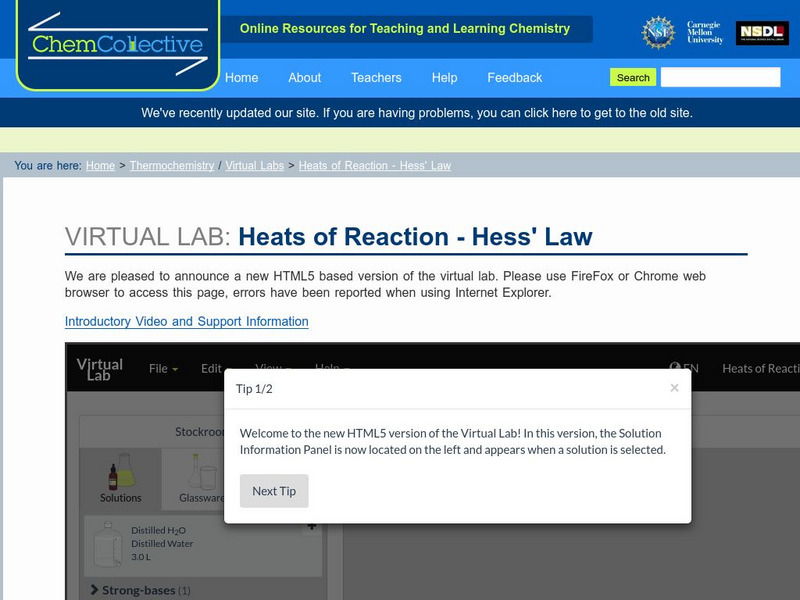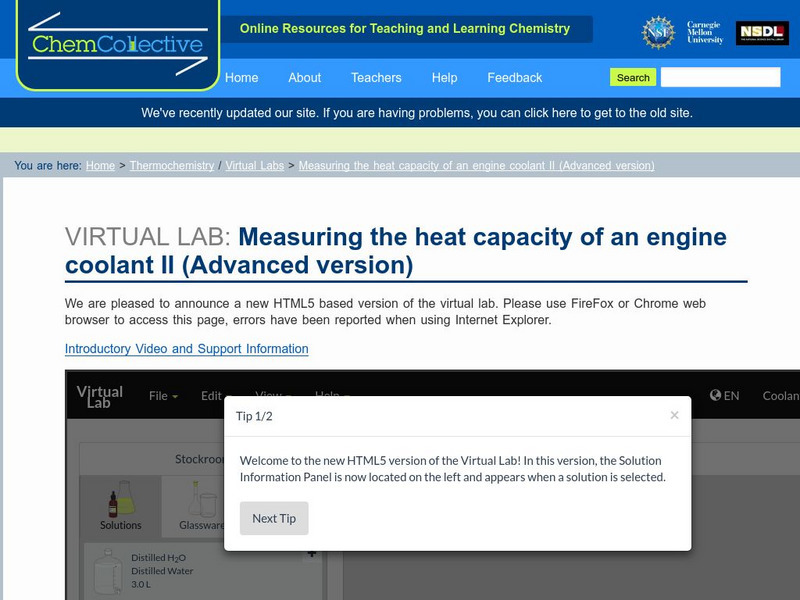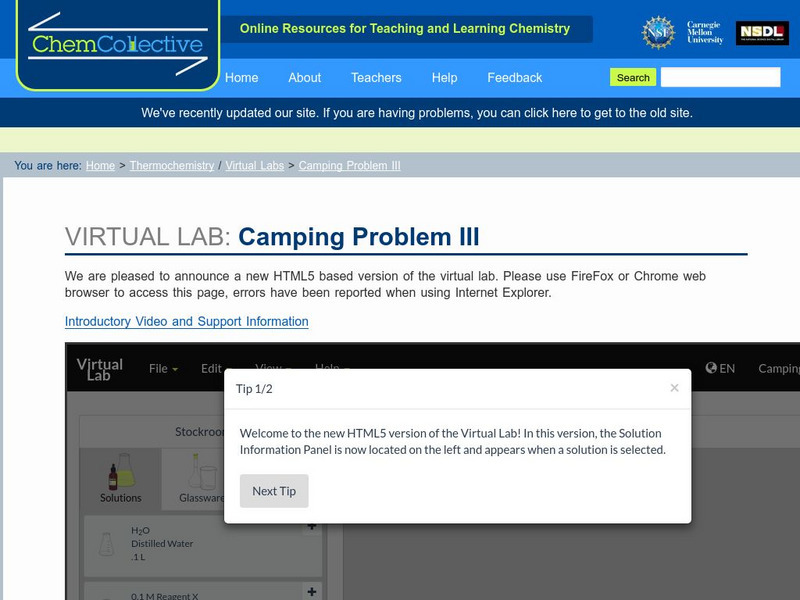Georgia Department of Education
Ga Virtual Learning: Chemistry: Thermochemistry
Through informational text, interactive practice problems, online labs, and virtual simulations, students are introduced to the concepts of thermochemistry.
Chemistry Collective
Chem Collective: Atp Reaction: Thermochemistry and Bonding
Determine the enthalpy of the ATP reaction.
Chemistry Collective
Chem Collective: Current Collection of Virtual Lab Problems
A collection of over 30 virtual chemistry problems with accompanying interactive activities. Each problem includes a word file for potential differentiation in your classroom.
Carnegie Mellon University
Chem Collective: Meals Ready to Eat
While camping on the Appalachian Trail, a storm dampens all the fire wood and you must design a chemical reaction to heat your meal. In this activity, students design an experiment in the virtual lab to determine the heat of reaction for...
Chemistry Collective
Chem Collective: Coffee Problem
Use the virtual lab to determine how much milk to add to hot coffee to reach the desired temperature
Chemistry Collective
Chem Collective: Mission Critical Chemistry
Students use stoichiometry and thermochemistry to design a new fuel for a mission to Mars. In this activity, students work in teams using the virtual lab to characterize a new set of oxidants and reductants that can serve as a fuel for...
Chemistry Collective
Chem Collective: Heats of Reaction: Hess's Law
This activity provides a demonstration of Hess's Law using three reactions: the solubility NaOH in water, the solubility NaOH in HCl, and the reaction of a solution of HCl and a solution of NaOH.
Chemistry Collective
Chem Collective: Determining the Heat of Reaction in Aqueous Solution
In this activity, students perform an experiment to determine the heat of a reaction.
Chemistry Collective
Chem Collective: Measuring the Heat Capacity of an Engine Coolant.
As an analytical chemist at a company developing new engine coolants your task is to determine the heat capacity of a newly developed product and then to determine if its heat capacity is greater of less than that of ethylene glycol.
Chemistry Collective
Chem Collective: Measuring the Heat Capacity of an Engine Coolant Ii
Measure and compare the heat capacity of an unknown liquid with an unknown density.
Chemistry Collective
Chem Collective: Camping Problem I
In this part of the MRE scenario, students measure the enthalpy of a reaction.
Chemistry Collective
Chem Collective: Camping Problem Ii
In this part of the MRE scenario, students determine change in the enthalpy of a reaction as the concentration of reactants are varied.
Chemistry Collective
Chem Collective: Camping Problem Iii
In this part of the MRE scenario, students create solutions that when mixed, increase to a certain temperature.












